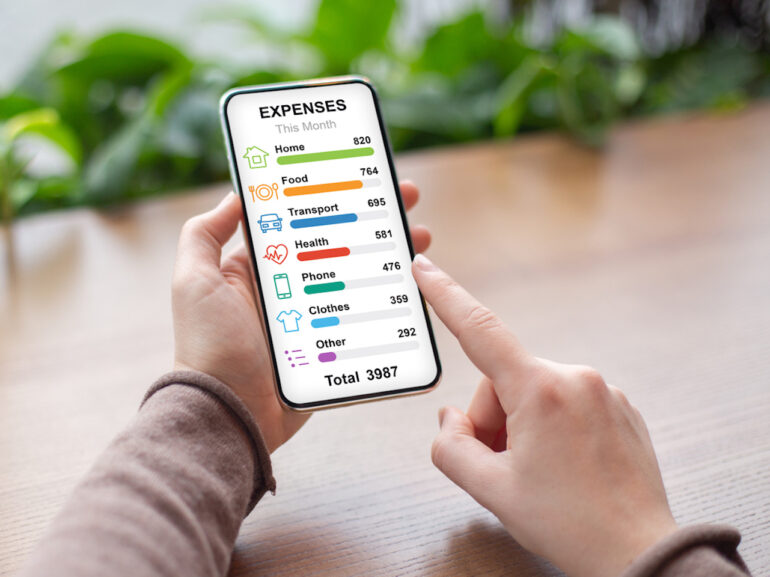Last week, in a weirdly confusing yet optimistic press release, we heard that OG budgeting app Mint was shutting down and directing its customers to Intuit’s similar service, Credit Karma.
To some, it may have come as quite a surprise. For at least a decade, Mint, launched in 2006, reported that its user base was only growing. In 2016, the company said it had over 20 million users.
However, others say the only surprise comes in Intuit’s reluctance to push the app past its “Personal Financial Management” scope into “Personal Financial Performance Management”
The difference? Mint customers could track their finances. Others in the PFM space that show continued success impact their customers’ finances.
Mint’s demise, therefore, may serve as a warning to others. PFM has evolved past plain budgeting.
While customers are still looking to “take control” of their finances, they are turning towards apps that help them actively engage. (What use is knowing that I routinely spend hundreds on something if I don’t know the other options?)
Personalization, AI, and Open Finance may all be poised perfectly to feed into this evolution.
FEATURED
The Demise Of Intuit Mint And Personal Financial Management
By Ron Shevlin, Senior Contributor
The shutdown of Mint offers lessons to Credit Karma—as well as to banks—on what consumers really value and what they’re willing to pay for.
FROM FINTECH NEXUS
| Rough Time Ahead for VC Funding in Fintech By Isabelle Castro Margaroli This year has seen new lows for VC funding. While some success stories have emerged, the path may continue into 2024. Comprehensive Trustwave report shares threats to financial services By Tony Zerucha A new report from Trustwave SpiderLabs provides a rich description of the myriad of threats facing financial services companies. 2023 Financial Services Sector Threat Landscape covers prominent threat actors and tactics, breaks down the financial services attack flow into steps, and covers several common hacker entry points. |
| PODCAST Podcast: Using AI to digitize financial documents at scale, with Ocrolus CEO Sam Bobley Listen now (47 mins) | Hi Fintech Architects, Welcome back to our podcast series! For those that want to subscribe in your… Listen Now |
| UPCOMING EVENTS The Most Important Policy Event of the Year! – Fintech Policy Summit Confirmed speakers include Congressman French Hill, Chairman of the Subcommittee on Digital Assets, Mark… See Details |
| WEBINAR Advancing transaction fraud detection with global payments intelligence Nov 9, 2pm EST As the pace of AI and ML development accelerates, technology providers are finding ways to better protect financial institutions… Register Now |
ALSO MAKING NEWS
- Global: Big Tech companies’ latest forays into financial servicesAmazon, Apple, Meta, Alphabet and X have all been ramping up their ability to offer payments services, loans and other traditional bank products.
- USA: Why Banks Are Suddenly Closing Down Customer AccountsSurprised individuals and small-business owners can’t pay rent or make payroll, and no one ever explains what they did wrong.
- USA: Citigroup considers deep job cuts for CEO Jane Fraser’s overhaul, called ‘Project Bora Bora’Citigroup CEO Jane Fraser may preside over some of Wall Street’s deepest job cuts in years as she faces mounting pressure to fix the third-largest U.S. bank.
- USA: The Payments Blindspot That Could Cost Banks BillionsMost banks see commercial payments as a cost center rather than a source for growth, but with rates rising they can be critical to attract and retain business deposits.
- Europe: Klarna, Europe’s $6.7 billion buy now, pay later firm, sets wheels in motion for eventual IPOBuy now, pay later firm Klarna has begun a legal entity restructuring to set up a new holding company in the U.K., as a precursor to an eventual IPO.
- USA: U.S. Treasuries Spearhead Tokenization BoomDriven by favorable macro conditions and increased willingness among traders to dive into real-world assets, the market for tokenized debt is flying. Jeff Wilser reports for Trading Week.
- Global: Why crypto is a poor relation of digital paymentsReal-world use will still be the main driver of growth


